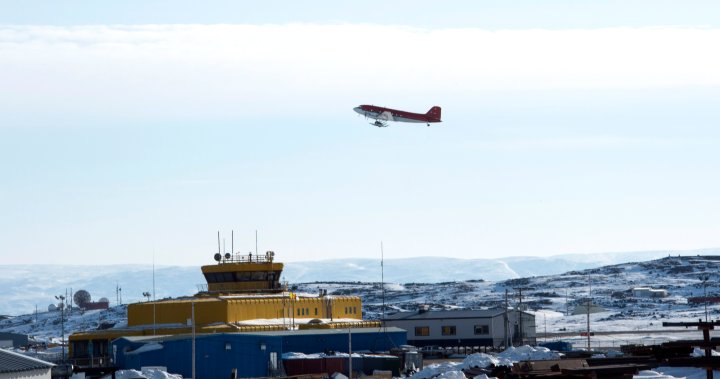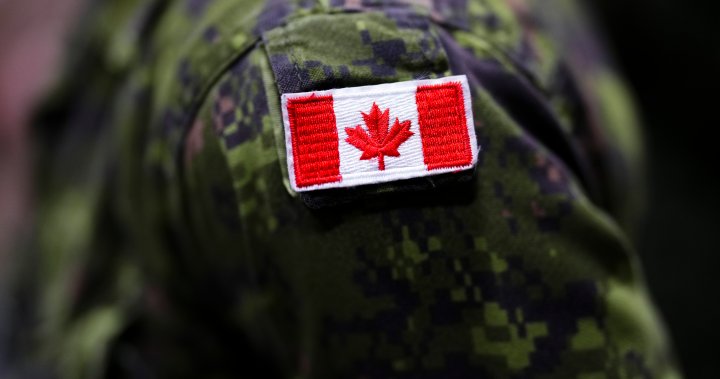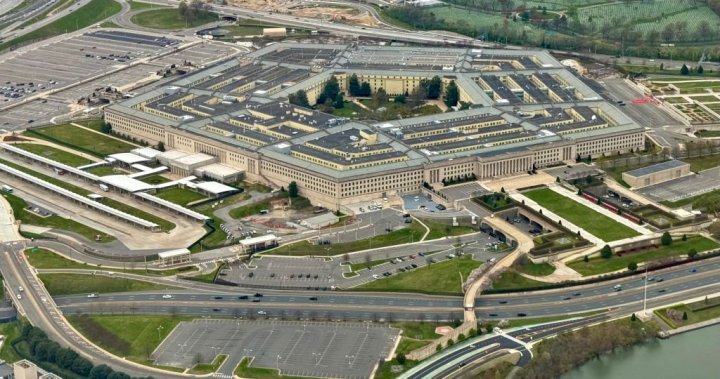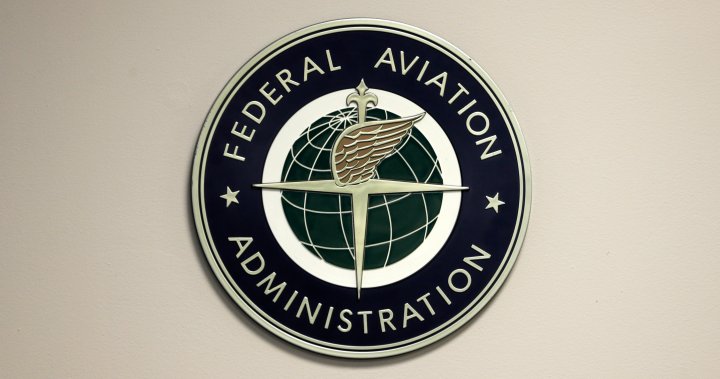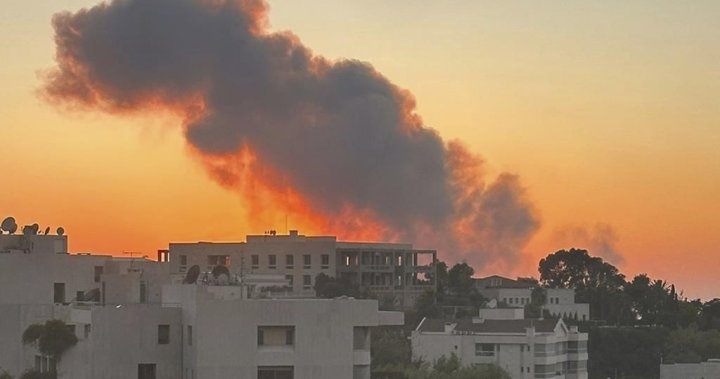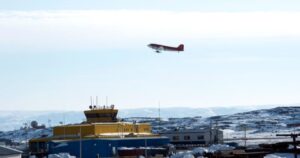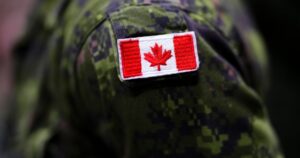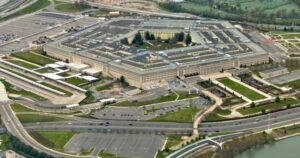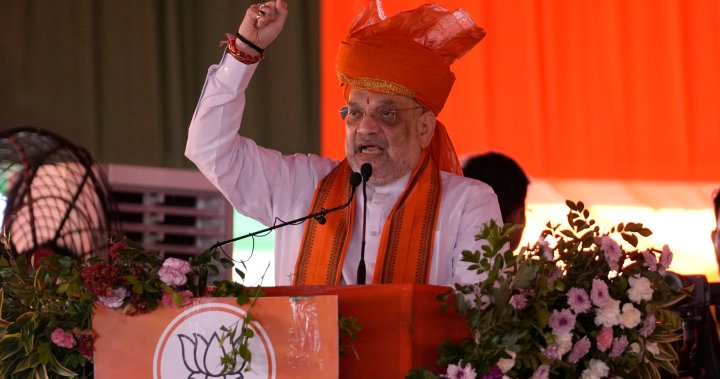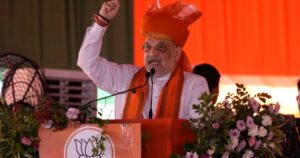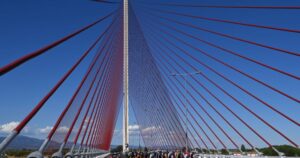The Israeli military said it struck Hezbollah headquarters in Beirut on Friday in a series of massive explosions that targeted the militant group’s leader and flattened several high-rise residential buildings. The largest explosion to hit the Lebanese capital in the past year appears likely to push the escalating conflict into all-out war. The Lebanese Ministry of Health said that at least six people were killed and 91 others were injured.
Hezbollah leader Hassan Nasrallah was the target of the strikes on the group’s headquarters, according to two people familiar with the matter who requested anonymity, including a US official. The Israeli army refused to comment on who it was targeting. It was not immediately clear whether Nasrallah was at the site, and Hezbollah did not comment on the report.
The death toll is likely to rise significantly as teams are still combing through the rubble of six buildings.
After the strikes, Prime Minister Benjamin Netanyahu suddenly cut short his visit to the United States and returned to his country. Hours earlier, he delivered a speech before the United Nations, pledging the continuation of the intense Israeli campaign against Hezbollah over the past two weeks, weakening hopes for a ceasefire with international support.
Story continues below ad
News of the explosions came while Netanyahu was holding a press conference after his speech at the United Nations. A military aide whispered in his ear, and Netanyahu quickly ended the briefing.

‘Enough is enough’: Netanyahu tells UN Israel seeks peace but will fight until victory
Israeli army spokesman Admiral Daniel Hagari said the strikes targeted Hezbollah’s main headquarters, saying it was located underground beneath residential buildings.
A series of explosions that occurred near nightfall reduced six residential towers to rubble in Haret Hreik, a densely populated, Shiite-majority area on the outskirts of Beirut, according to the Lebanese National News Agency. A wall of billowing black and orange smoke billowed into the sky while windows rattled and homes shook about 30 kilometers (18 miles) north of Beirut.
Footage showed rescue workers climbing over large slabs of concrete, surrounded by tall piles of twisted metal and debris. Several holes were seen, into which one car fell. A group of residents were seen carrying their belongings as they fled along the main road out of the area.
Story continues below ad
Israel did not provide an immediate comment on the type of bomb or the number of bombs used, but the resulting explosion destroyed an area larger than a residential building in the city. The Israeli army has in its arsenal American-made “Bunker Buster” guided bombs weighing 2,000 pounds, specially designed to hit underground targets.
Richard Weir, a crises and weapons researcher at Human Rights Watch, said the explosions were consistent with that category of bomb.

Get daily national news
Get the day’s top political, economic and current affairs news, headlines, delivered to your inbox once a day.
This was followed by the Israeli Air Force launching a new set of strikes early Saturday shortly after an Israeli military spokesman warned residents of three buildings to evacuate, saying Hezbollah was using them to hide weapons, including anti-ship missiles.

Canada is preparing for possible evacuations from Lebanon
To a degree unprecedented in previous conflicts, over the past week Israel has sought to eliminate Hezbollah’s senior leadership. But any attempt to assassinate Nasrallah, whether successful or not, would constitute a major escalation. The Pentagon said the United States had no advance warning about the strikes.
Story continues below ad
Nasrallah has remained in hiding for years, rarely appearing in public. He gives sermons regularly, but always via video from unknown locations. The site struck on Friday evening was not publicly known as Hezbollah’s headquarters, although it is located in the party’s “security quarters,” a heavily guarded part of Haret Hreik where it has offices and operates several nearby hospitals.
Four hours after the raid, Hezbollah has not yet issued any statement referring to it. Instead, it announced that it had fired a barrage of missiles at the Israeli city of Safed, which it said was “in defense of Lebanon and its people, and in response to the barbaric Israeli violation of cities, villages and civilians.” The Israeli military said a house and a car in Safed were hit, and officials said a 68-year-old woman was slightly injured by shrapnel.
Israel dramatically intensified its air strikes in Lebanon this week, saying it was determined to end more than 11 months of Hezbollah fire on its territory. The escalating campaign led to the killing of more than 720 people in Lebanon, including dozens of women and children, according to statistics from the Ministry of Health. The official news agency said that a dawn strike on Friday in the Sunni-majority border town of Shebaa resulted in the death of nine members of one family.
The scope of the Israeli operation remains unclear, but officials said a ground invasion to push the armed group away from the border was possible. Israel moved thousands of soldiers towards the border in preparation for this.
Story continues below ad

Israel pledges to continue fighting Hezbollah “with full force”
Trending now
-

Hurricane Helen: Thousands evacuated amid fears of Tennessee dam collapse
-

Charge your phone overnight? That’s why Montreal fire officials say stop
The White House said that President Joe Biden has ordered his national security team to evaluate whether further measures are needed to enhance the security of American interests in the Middle East.
National security aides briefed Biden several times on Friday after the attack on Hezbollah headquarters. According to the White House, the president “directed the Pentagon to evaluate and adjust U.S. force posture in the region as necessary to enhance deterrence, ensure force protection, and support the full range of U.S. objectives.”
At the United Nations, Netanyahu pledged to “continue to weaken Hezbollah” until Israel achieves its goals. His comments dampened hopes for a US-backed call for a 21-day truce between Israel and Hezbollah to allow time for a diplomatic solution. Hezbollah did not respond to the proposal.
Iran-backed Hezbollah, the most powerful armed force in Lebanon, began firing rockets at Israel immediately after the Hamas attack on October 7, saying it was a show of support for the Palestinians. Since then, it has exchanged fire with the Israeli army almost daily, forcing tens of thousands of people to flee their homes on both sides of the border.
Story continues below ad
An Israeli security official said he expects that the campaign against Hezbollah will not last as long as the current war in Gaza, because the army’s goals are much narrower.
In Gaza, Israel aims to dismantle the military and political regime of Hamas, but the goal in Lebanon is to push Hezbollah away from the border — which is “not as high as Gaza” in terms of operational goals, said the official who spoke on the subject. The condition of anonymity is due to military briefing guidelines.
The Israeli army said it carried out dozens of raids across the south on Friday, targeting Hezbollah missile launchers and infrastructure. She said that Hezbollah fired a barrage of missiles towards the city of Tiberias in northern Israel.

Israel rejects the ceasefire proposal in Lebanon
In the city of Tyre, in southern Lebanon, civil defense workers recovered the bodies of two women – 35-year-old Heba Ataya and her mother, Sabah Alian – from under the rubble of a building destroyed by a strike.
Story continues below ad
One of the men shouted as her body came out: “This is Sabah, these are her clothes, my love.”
Israel says that its accelerated strikes this week have already caused serious damage to the armed capabilities of Hezbollah and its fighters. But the organization boasts of possessing a large arsenal of rockets and missiles, and its remaining capabilities are still unknown.
Hezbollah officials and their supporters remain defiant. Shortly before the explosions on Friday evening, thousands gathered in another part of the Beirut suburbs to attend the funeral of three Hezbollah members killed in earlier strikes, including the head of the group’s drone unit, Mohamed Sorour.
The men and women in the giant crowd waved their fists in the air and chanted: “We will never accept humiliation” as they walked behind the three coffins, wrapped in the group’s yellow flag.
Hussein Fadlallah, the top Hezbollah official in Beirut, said in a speech that no matter how many leaders Israel kills, the group has countless numbers of experienced fighters. He pledged that Hezbollah would continue fighting until Israel stopped its attack on Gaza.
Fadlallah said: “We will not give up on supporting Palestine, Jerusalem, and oppressed Gaza.” “There is no place for neutrality in this battle.”
Associated Press writers Tia Goldenberg at the United Nations, Abby Sewell in Beirut, Amer Madhani in Rehoboth Beach, Delaware, and Zeina Karam in London contributed to this report.

